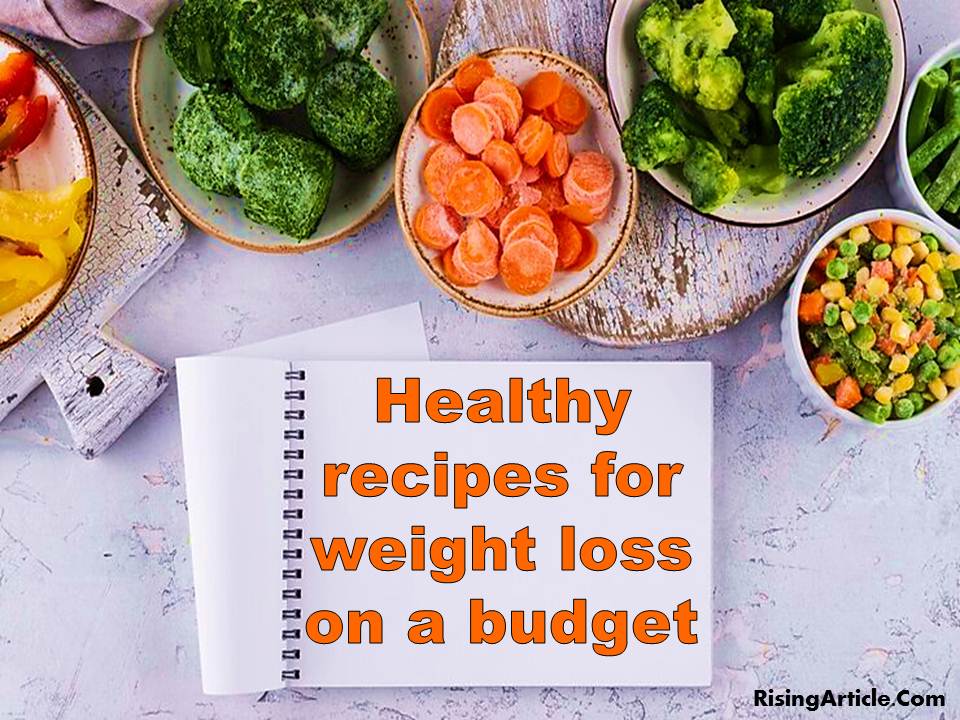Good Delicious and Nutritious Meals for Effective Weight Loss
Many people in today’s fast-paced world aspire to lose weight and lead healthier lifestyles. The quality of your meals is an important factor that should never be disregarded, even though losing those extra pounds frequently entails exercise and eating a balanced diet. A healthy weight can be attained and maintained by following the basic principle of Good meals for weight loss,” which goes beyond a trendy phrase.
We will examine the key components that go into creating a meal that is both delicious and helpful in weight loss in this article, “Good Meals for Effective Weight Loss.” We’ll examine the science behind it, go over some delicious recipes, and offer insightful advice to help you make wise decisions as you work toward becoming a fitter, healthier version of yourself. Knowing the meaning of “good meals” will be your compass whether you’re trying to lose weight for the first time or want to change the way you eat now. So let’s go on this gastronomic and nutritional journey where losing weight and tasting good go hand in hand.
Good meals for Effective weight loss
 A healthy, calorie-restricted diet and consistent exercise are the keys to effective weight loss. These are some dishes that will keep you full and help you lose weight while supplying vital nutrients:
A healthy, calorie-restricted diet and consistent exercise are the keys to effective weight loss. These are some dishes that will keep you full and help you lose weight while supplying vital nutrients:
Breakfast Options
Add fresh berries, almonds, and a drizzle of honey to the top of your oatmeal.
Yogurt Parfait: Arrange granola, sliced fruit, and Greek yogurt in layers.
Add veggies like bell peppers, tomatoes, and spinach to scrambled eggs.
Lunch Ideas
Vegetables, lean protein, and leafy greens abound in this grilled chicken salad.
Add quinoa, roasted veggies, and a source of protein to a bowl.
Reduce your calorie intake and increase your fiber intake with Lentil Soup.
Dinner Choices
Serve baked salmon with quinoa on the side and steaming broccoli.
Stir-fry: Combine lots of vibrant veggies with lean protein (tofu or chicken).
Vegetable Curry: Combine a variety of vegetables to create a tasty, low-calorie curry.
Snacks
A tiny handful of almonds makes a filling and healthful snack.
Carrot sticks with hummus: A wholesome, crunchy choice.
Greek yogurt is a high-protein hunger-suppressant.
Portion Control
Take note of serving sizes to prevent overindulging.
To make your meal look larger, use smaller plates.
Arrange the vegetables on half of your plate, then top with quarters of lean protein and quarters of complex carbohydrates.
Drink Water
Throughout the day, make sure to stay hydrated by drinking lots of water.
There are instances when hunger and thirst are confused.
Avoid Sugary Beverages
Restrict or do away with sugar-filled beverages, such as soda and various fruit juices.
Choose for unsweetened beverages, herbal tea, or water.
Plan and Track
Arrange your snacks and meals ahead of time.
To maintain your calorie target, think about keeping a food journal.
Choose Whole Foods
Give priority to complete, unprocessed foods such as whole grains, fruits, vegetables, and lean meats.
Steer clear of processed, high-calorie, low-nutrient meals.
Be Mindful
Enjoy your meals and eat slowly.
Recognize when your body signals fullness or hunger.
Do not forget that losing weight is a gradual process, and before making any big dietary or exercise changes, you should always speak with a medical professional or a registered dietitian. In accordance with your particular requirements and objectives, they can offer tailored advice and recommendations.
Tips for Effective Weight Loss
 Be aware of calorie intake and keep an eye on portion sizes.
Be aware of calorie intake and keep an eye on portion sizes.
Drink water or herbal tea to stay hydrated.
Steer clear of highly processed and sugary foods.
Consume a lot of foods high in fiber to help you feel full for longer.
Make an advance meal and snack plan to steer clear of bad, snap decisions.
Incorporate sources of lean protein to help maintain muscle mass and satiety.
Limit or stay away from alcohol and sugary drinks.
Exercise on a regular basis, ideally by combining strength and cardio training.
Recall that losing weight is a personal journey for each person, so it’s critical to identify a sustainable, well-balanced strategy that suits you. Seek advice from a registered dietitian or healthcare provider to develop a customized meal plan that fits your dietary requirements and personal objectives.
Conclusion:
A key element of reaching and keeping a healthy body weight is selecting the appropriate meals for weight loss. The meals listed above are only a starting point because they feature a wide range of foods that are high in nutrients. Portion control, consistent exercise, and a generally well-balanced diet are also essential for successful weight loss.
The secret is to create a fun, sustainable eating schedule that works for your unique needs and tastes. On your weight loss journey, keep in mind that seeking advice from a registered dietitian or healthcare professional can be very helpful. You can increase general well-being and work toward your weight loss goals by developing a long-term, healthy eating routine and making thoughtful food choices.




